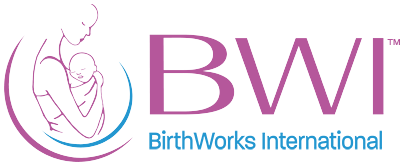"If we miss the window at birth, then the immune system never matures correctly. If you upset this process in early life, then we may have consequences later. That can lead to the development of disease later in life."
-Dr. Rodney Dietert, Professor Emeritus of
Immunotoxicology, Cornell University
Human kind has co-evolved over the last four million years with our microbiome physiology communities located in multiple body sites. Yet we still know little about how an infant is first exposed to and colonized by them. But we do believe that having an understanding of their characteristics has everything to do with human development and physiology which makes this a current rich, evolving, and fascinating field of study and research.
There is general agreement that a healthy microbiome strengthens a baby’s immune system and significantly impacts our health as adults. We cannot live without our microbiome. Always remember that our health is our wealth.
Our Microbiome
The microbiome refers to all the hundred trillion forms of bacteria, viruses, fungi, protozoa and their genes that live in every nook and cranny inside of us and around us in the water, soil, and air. They are called microorganisms as they are too small to be seen by the naked eye. They form a microscopic community that is inextricably tied to our health. How can we comprehend the one billion bacteria that are in just one drop of fluid from the colon alone? Of all these microbes, we now understand that most of them are important for our health, living in harmony with their human hosts, providing vital functions essential for human survival, but there are also some that make us sick. Where do they come from, what do they do and why we can’t live without them is a mystery that is gradually unfolding.
It was only when the National Institutes of Health as recently as 2008 studied their genetic code, that we learned not all bacteria are pathogenic (causing illness) and that in fact most are beneficial to our health, actually helping to prevent any pathogenic bacteria, and helping to digest nutrients, synthesize vitamins, and support the immune system in general. In fact, there are foods we eat simply to feed our microbiome. A diet high in fiber is essential since fiber is what transports food to our microbiome helping it to keep us healthy. Ultraprocessed food does not have a firm matrix in their cell walls, which makes it more difficult to transport food you eat to your important microbiome. Eating healthy foods with fiber, keeps your microbiome healthy. (Greger: How Not To Age ) Most birthing parents and even birth professionals are unaware of the important significance of our microbiome.
Challenging Beliefs: Is a Baby in the Womb Sterile Before Birth?
It has long been assumed that the human fetus is sterile. This would mean that babies in the womb do not encounter microbes until the moment of birth. There is disagreement between perinatal and microbiological researchers as to whether or not the human microbiome is seeded prior to birth.
Some believe that research showing microbial communities in the placentas, amniotic fluid or meconium are due to underlying contamination issues. However newer research and more modern techniques that allow for more sensitive and accurate profiling of low biomass samples found all meconium samples to contain bacterial DNA. They feel there is evidence that the human fetus is exposed to bacteria prior to birth.
In Birth
All agree, however, that the major seeding of the mother’s microbiome for the baby occurs when the baby passes through the birth canal, close to the mother’s rectum in natural birth. Near crowning, as the baby rotates and turns, his mouth and nose become in contact with his mother’s vaginal and rectal contents where the baby swallows a mouthful of his mother’s microbes. After birth, the baby picks up more microbiome during breastfeeding. Because babies who pass through their mother’s vaginas appear to receive the most significant dose of her microbiome, providing a strengthened immune system, it is important not to resort to cesarean births unless medically necessary. This is important because we want the baby to have a strong immune system. Without this major seeding the baby’s immune system is compromised and subjected to the risks of asthma, allergies, obesity, and Type 1 diabetes.
Research through the years is leading to an understanding that babies already have bacteria and fungi in their guts during pregnancy, preparing the baby for life in the outside world. This process of colonization is believed to be a natural and steady one in the fetus. The field of study that is still unfolding is answering the question, “How does a baby get his microbiome before birth?”
Benefits of microbiome seeding
In pregnancy
We are learning that the human body works via systems of networks that are interconnected. Robynne Chutkan MD in her book The Microbiome Solution states that “During pregnancy, one of the most dramatic changes happens in a mother’s vagina…cells in the vaginal lining ramp up production of a carbohydrate called glycogen, sending glycogen-loving Lactobacillus bacteria into a feeding frenzy and increasing their numbers. Lactobacilli convert lactose and other sugars to lactic acid, creating an acidic, unfriendly environment that helps to protect the growing fetus from potential invaders.” (Chutkan 2015)
Chutkan goes on to say, “This brief act of swallowing a mouthful of our mother’s microbes as we enter the world confers unbelievable important benefits.” because without the mother’s microbiome, the baby’s immune system is weakened and less able to fight off diseases. It turns out that exposure to bacteria is a critical early step in the development of our immune system.
In birth
The beneficial microbes contain special sugars that are then fed by the mother’s breastmilk whose basic components are lactobacillus and other probiotics. These continue to help the baby to differentiate between friend and foe bacteria. Therefore, a baby’s microbiome depends on breastmilk for food and for health. This is still another reason human milk /breast milk is best for the health and optimal growth of the newborn.
Birthing parents want their babies to have an optimal start in life. Harman and Wakeford state in their book Your Baby’s Microbiome, “Receiving these microbes, helps keep a baby’s organs functioning and protects him from disease. In return the human body gives the microbes a home and we provide them with food as the gut microbes help break down nutrients. This is a symbiotic process. (Harman 2017)
The study of our microbiome continues to evolve showing how essential they are to our health. On September 20, 2025, Toni Harman and Alex Wakeford are conducting a world wide premier of the showing of their new film “The Microbirth Plan.” To view the trailer, visit http://microbirthplan.com/



